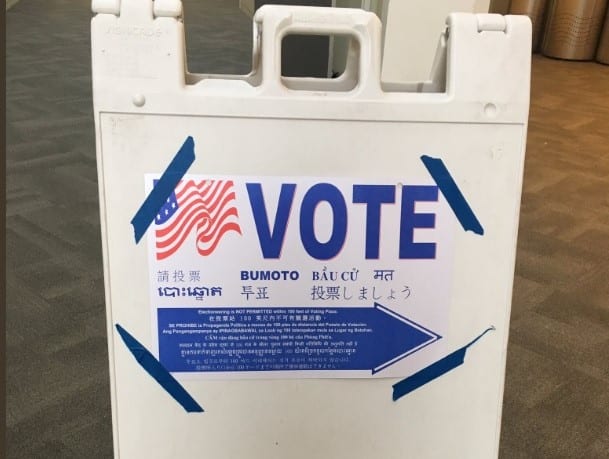WASHINGTON, D.C. — The November presidential election could be in jeopardy unless lawmakers protect the integrity of the U.S. Postal Service and provide more funding to state governments, according to multiple witnesses who recently testified before House lawmakers.
“Voters should not be forced to choose between their health and their fundamental right to vote but sabotaging the U.S. Postal Service could do just that,” Vanita Gupta told the Committee on House Administration Aug. 28.
Gupta, president and chief executive officer of the Leadership Conference on Civil and Human Rights — an umbrella organization comprised of various civil and human rights groups — said the conference was profoundly troubled by the recent attacks on the postal service.
President Donald Trump has repeatedly voiced strong opposition to mail-in voting and stated he will not provide a funding boost to the U.S. Postal Service.
Amber McReynolds, the chief executive officer for the National Vote at Home Institute, which works to expand vote-at-home systems nationwide, also told lawmakers they must ensure the U.S. Postal Service can provide reliable services. She said mail-in ballots were only one part of how the postal service supports elections.
“Federal and state laws have legal mandates with regards to sending voter registration information, ballot issue notices, election information, poll worker appointment letters, polling place notification cards and other required mailings,” she said. “All of these are legally required and are at risk if the postal service is unable to process mail effectively or experiences delays.”
House lawmakers understand the important role of the postal service, said Committee Chair Rep. Zoe Lofgren. The San Jose Democrat explained the House passed the Delivering for America Act on Aug. 29, which would prohibit the postal service from implementing any changes that would delay mail or reduce delivery standards. The bill would also provide $25 billion in funding and require the postal service to treat all election mail as first-class mail.
“Free and fair elections and unencumbered access to voting are the bedrock of our democracy,” Lofgren said. “Yet today, during a global pandemic, the likes of which our country has not experienced in more than a century, voters are worried about how to safely vote and navigate potential disruptions this November.”
The committee also heard from California Secretary of State Alex Padilla. He explained his office recently convened a group of researchers, policymakers, community organizations and elections officials to discuss ways to ensure the elections will be safe and fair. As a result, California will be implementing a variety of changes.
Padilla said elections officials are sending every active registered voter a ballot. The state’s tracking program has been expanded so voters can receive frequent calls, texts or emails about their ballot’s status and ballots postmarked on or before Election Day will be processed if they arrive up to 17 days following Election Day.
Counties may also consolidate polling places to one location for every 10,000 registered voters, he said, but they must be open for a minimum of four days leading up to and including Election Day.
Due to funding from the state, Padilla said California has the resources to implement these changes. But he said every state won’t be able to afford it.
“Many states have not received state funding and many states that have held their primary elections during this pandemic have expended most, if not all, of their CARES Act funds,” Padilla said. “I respectfully urge you to appropriate more funding for elections as soon as possible.”
While many who spoke at the hearing supported mail-in voting, Rep. Rodney Davis, a ranking committee member, said he did not believe it was a secure way to vote. The Illinois Republican said hundreds of thousands of mail-in ballots were rejected nationwide during the recent primaries, including in liberal states like California and New York.
Davis said he resented that any politician who voiced concerns about mail-in voting was portrayed as someone who supports voter suppression. Voters of color and young citizens were most likely to have their ballots rejected during the primaries, he added.
“Yet Democrats on this committee, in this House, and across the country continue to push implementing universal vote by mail before the November election,” Davis said. “…I’m afraid the vote-by-mail policies being pushed by Democrats are unintentionally taking us backwards.”
Contact Katie King at [email protected] or follow @KatieKingCST on Twitter.



Leave a Reply
You must be logged in to post a comment.